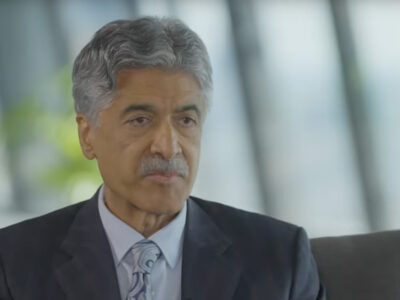Teasing out a patient’s medical background can be a chore. MED explores tips for transforming the paperwork process.
It’s a requisite first step in any consultation, and it should be straightforward. Yet the struggle to persuade patients to complete medical history forms is familiar to most hygienists.
A seemingly simple request can be met with anger, frustration, or an outright refusal. In the Middle East, this reaction is surprisingly common. Lauren Hiscock, an Abu-Dhabi based hygienist, recalls one patient blithely crossing through the section marked ‘recent surgeries’, only to later discover, post-procedure, from his wife that he had undergone a cardiac bypass two weeks earlier.
“It’s a learning curve,” she admits ruefully. “Many patients don’t understand how their medical history can affect their oral health, and the treatment we provide.”
An incomplete medical history, however, can be more than just an inconvenience. Patients that fail to mention allergies, or chronic medical conditions, can be putting their health at risk. So how can you best ensure you are receiving full and accurate information?
Read it and weep
Paperwork can be daunting, and medical history forms are often lengthy and hard to understand. For best results, questionnaires should strike a balance between being detailed enough to gather the required information, while falling short of intimidating patients.
Steer clear of technical jargon, and try to restrict the amount of information displayed on the page. All patients prefer clear and concise language, so stick to simple terminology for user-friendly forms.
Most Middle Eastern practices have a multicultural patient base, so ensure forms are reprinted in Arabic and English. By tailored the language to your practice’s demographic, you can help ensure patients understand the questions being asked of them.
War of the words
Don’t assume that all your patients are literate. According to the American Medical Association, an estimated 50% of the U.S. population is either functionally illiterate, or only marginally literate.
Noting the varied demographic of the Middle East, the regional figure here could be even higher, and the problem is compounded for patients whose first language is not English. Patients who express anger or frustration when faced with forms may be trying to cover up their disability.
One solution is to take a tip from physicians, and complete the form yourself. Going through the questions verbally takes the pressure off the patient, and ensures accurate responses are recorded. By personalising the experience, it feels less like a chore and more like a chat. And most importantly, it gives you what you need – a complete and full medical history, fast.
Cultural club
Many patients are reluctant to share their medical history, Hiscock notes. “There is a lot of stigma attached to medical problems in the Middle East,” she says. “Even when pushed, a lot of patients just don’t want to give you any information.”
Dental hygienists are in an excellent position to tackle cultural barriers. Reassure patients that the information remains confidential, but explain that it helps ensure you can do your job effectively. By engaging with the patient, and expressing sympathy with their concerns, they are more likely to feel comfortable opening up.
Why Forewarned is forearmed
When new patients book a first appointment, ask your front desk staff to inform them that they’ll be filling out a medical history when they arrive. When caught on the spot, patients often forget to mention something that is pertinent to their health. Prompts, via emails or calls, before the visit can encourage patients to include any relevant information.
Patients with chronic conditions, or who are taking multiple medications, should be asked to bring a list of their prescriptions to the practice so their record can be fully updated.
On interim visits, it is worthwhile asking patients whether there have been any medical changes since their last appointment.
Most medical associations recommend taking a new history for each patient every two to three years. Try keeping a note on each file to prompt you to ask for an update.
Patient satisfaction
Form-filling is often tedious, but taking the time to communicate well with your patients can have far-reaching effects. Turning a difficult experience into a rewarding encounter can help build a successful relationship that translates into better clinical results. Securing a full medical history is only the tip of the iceberg.






